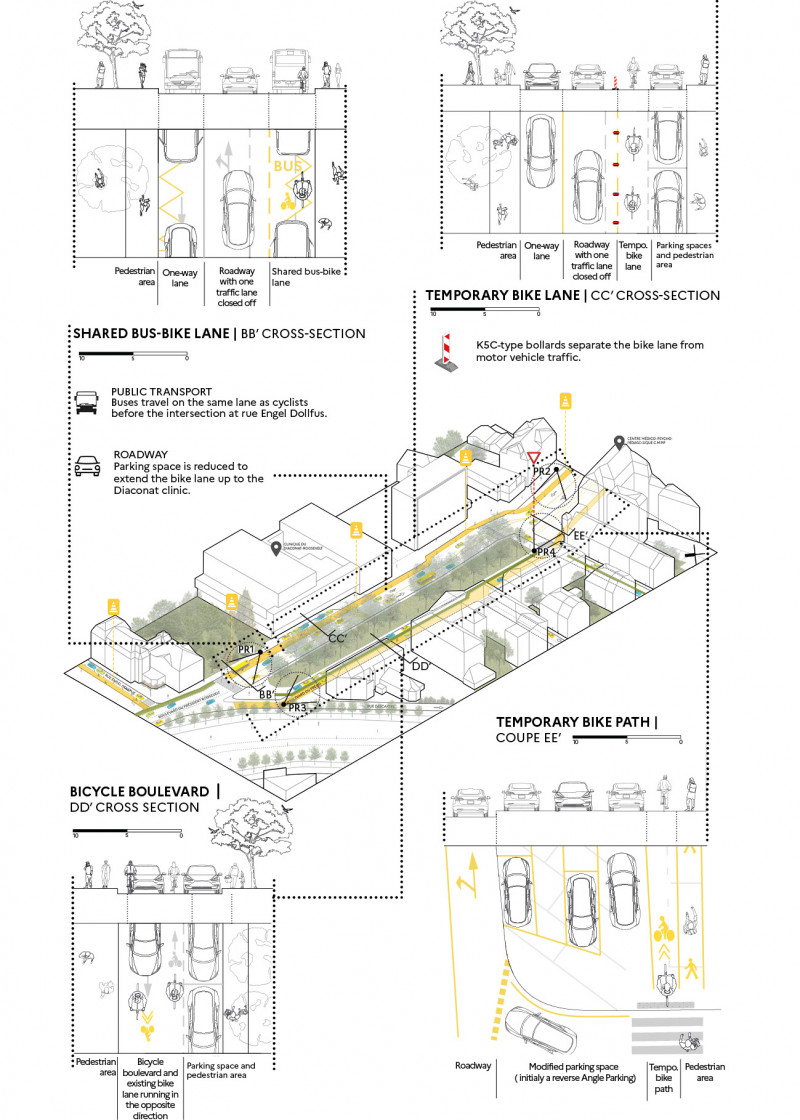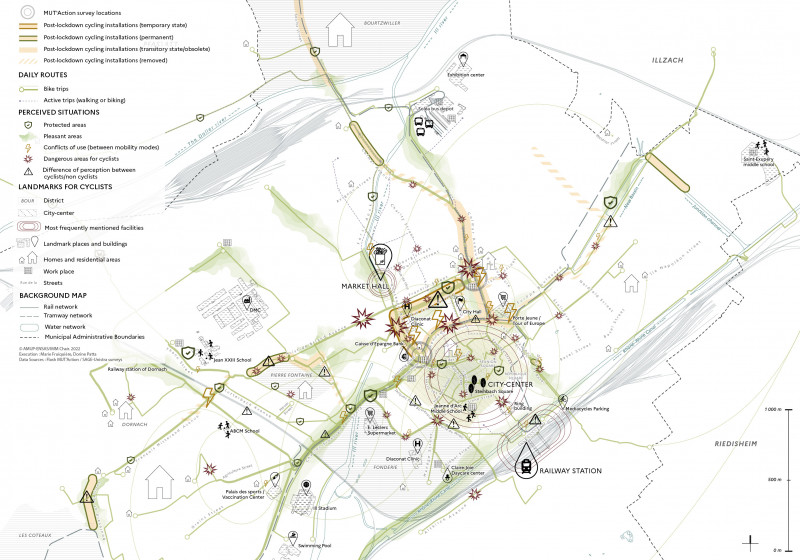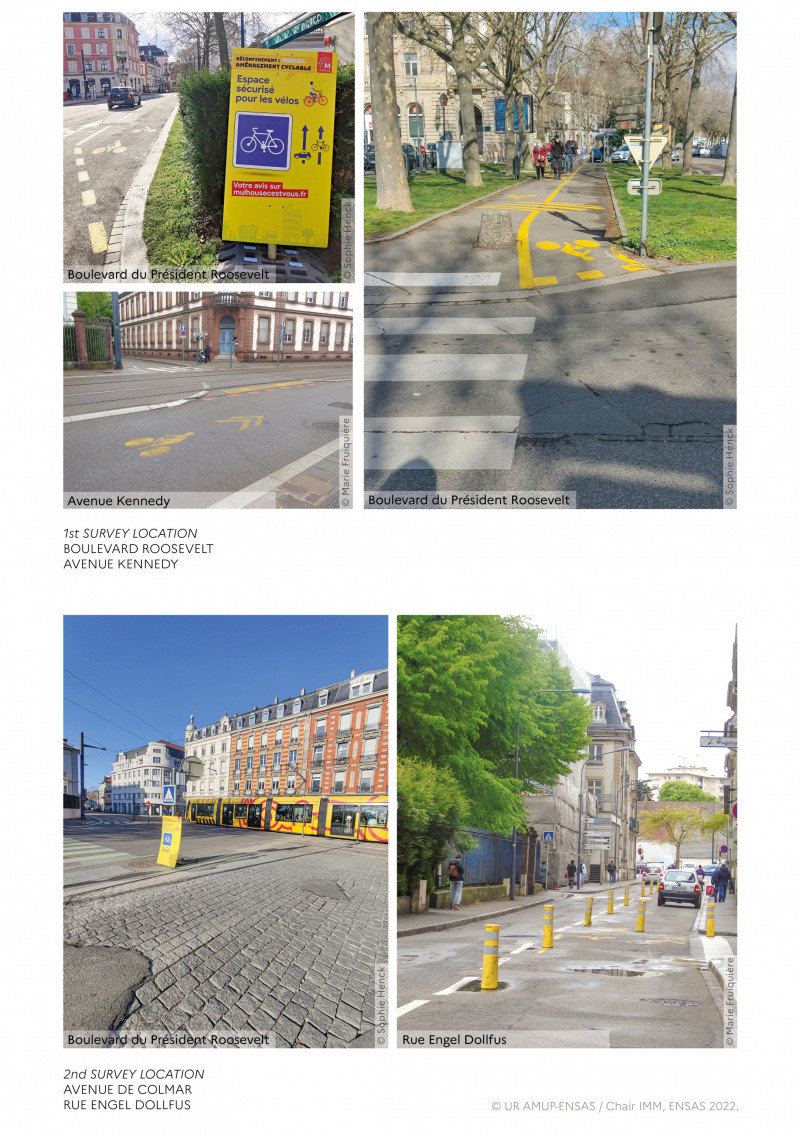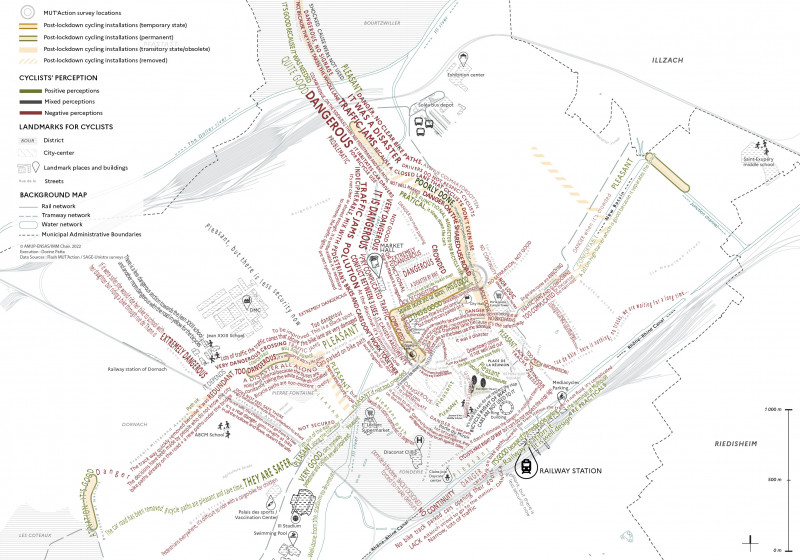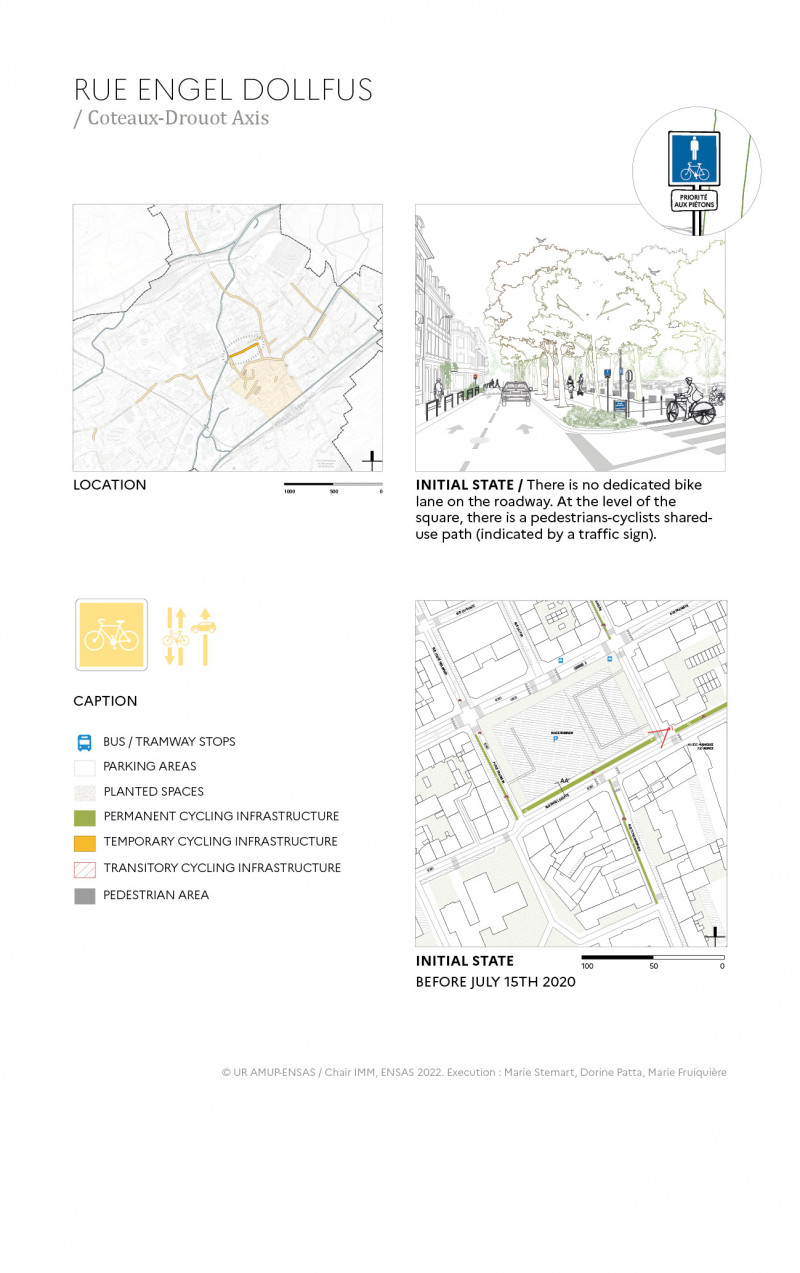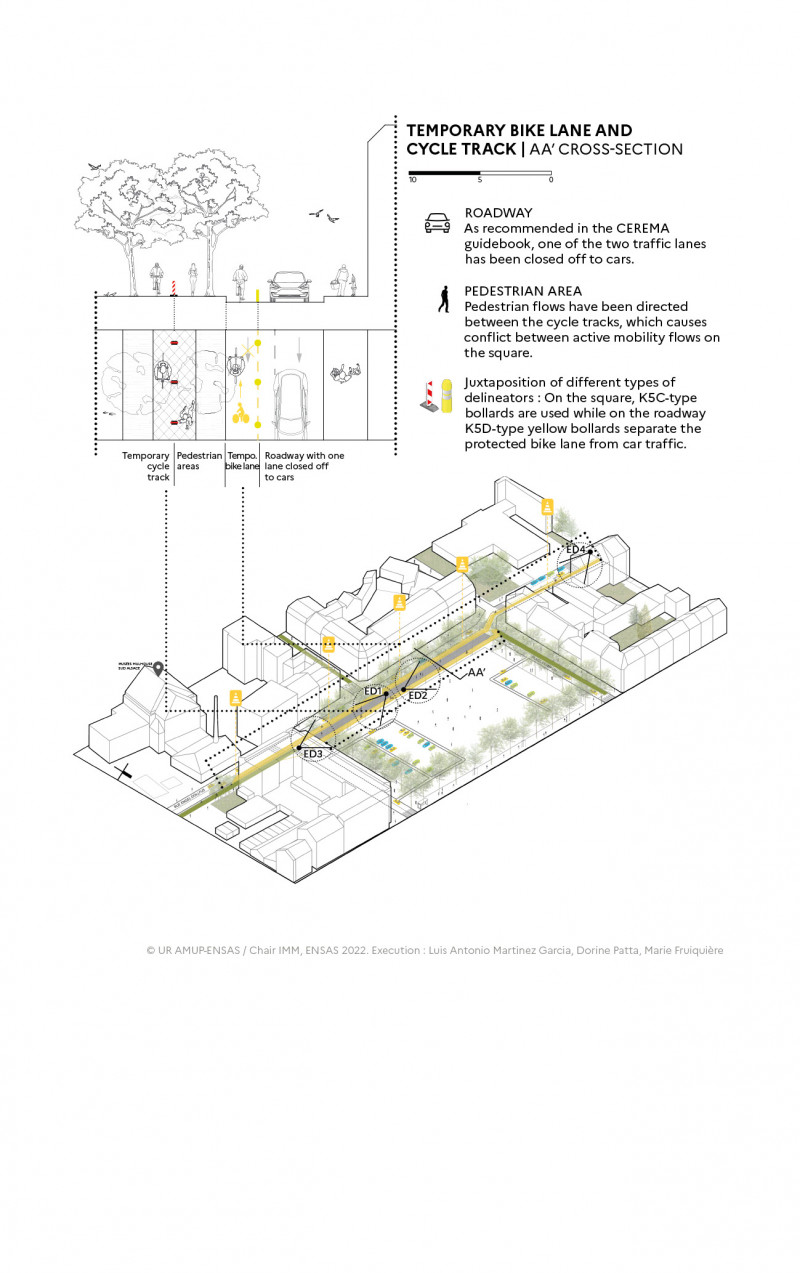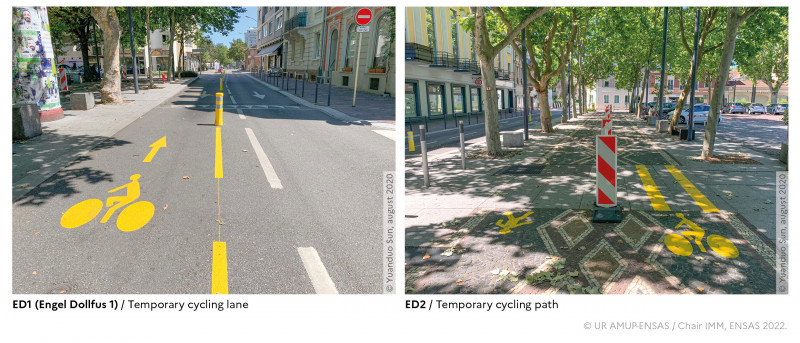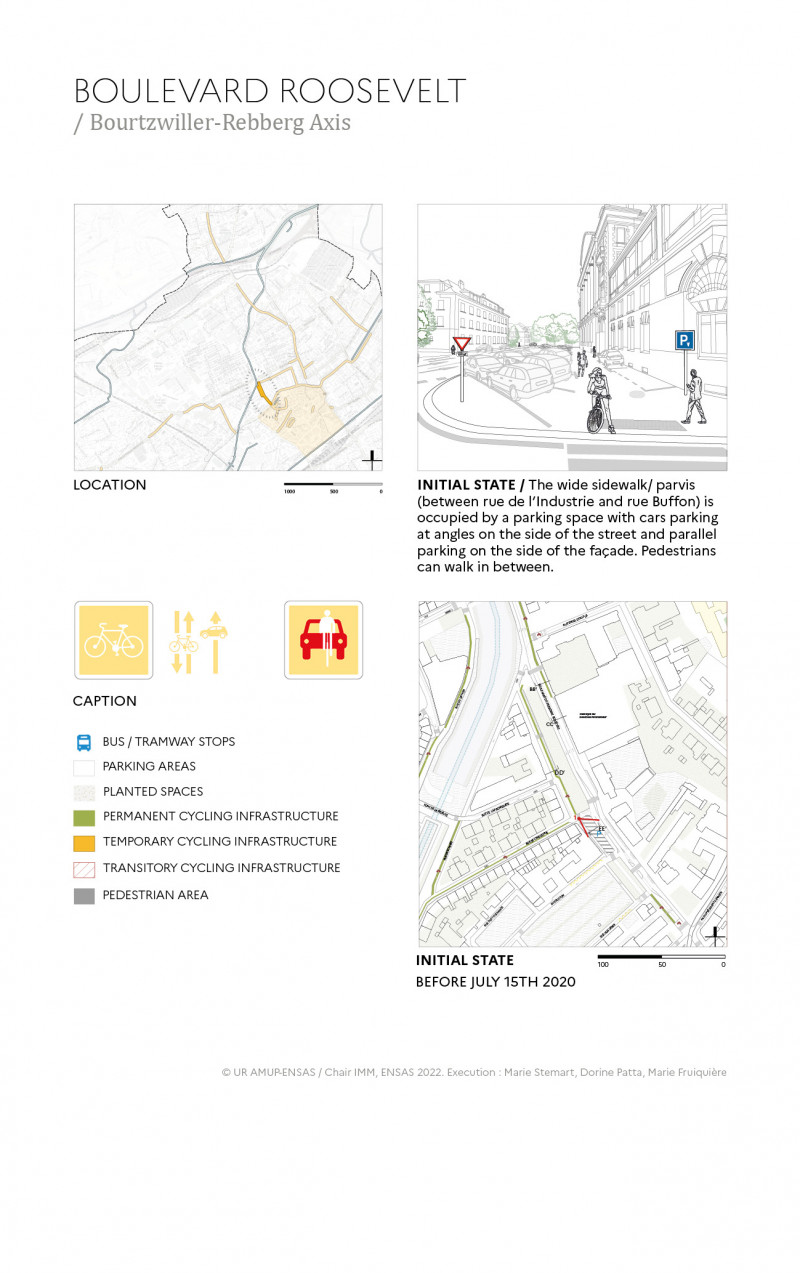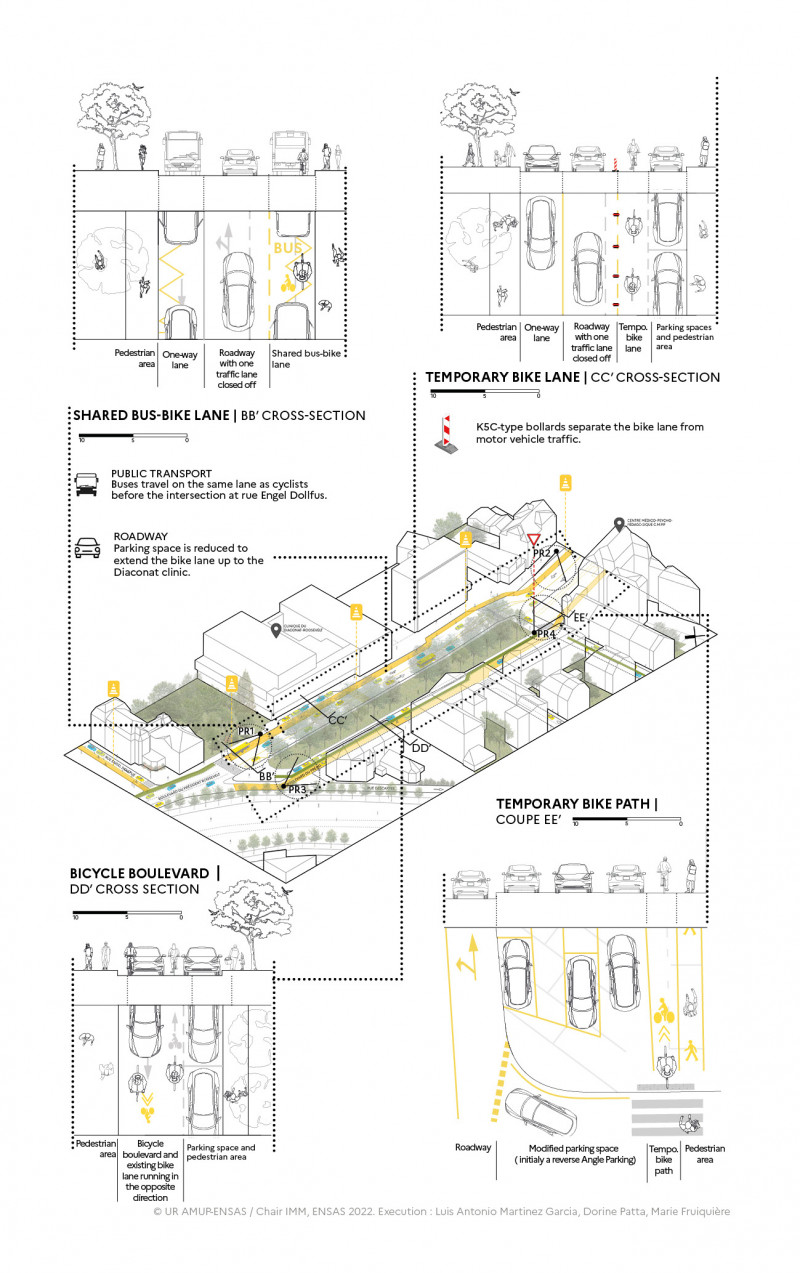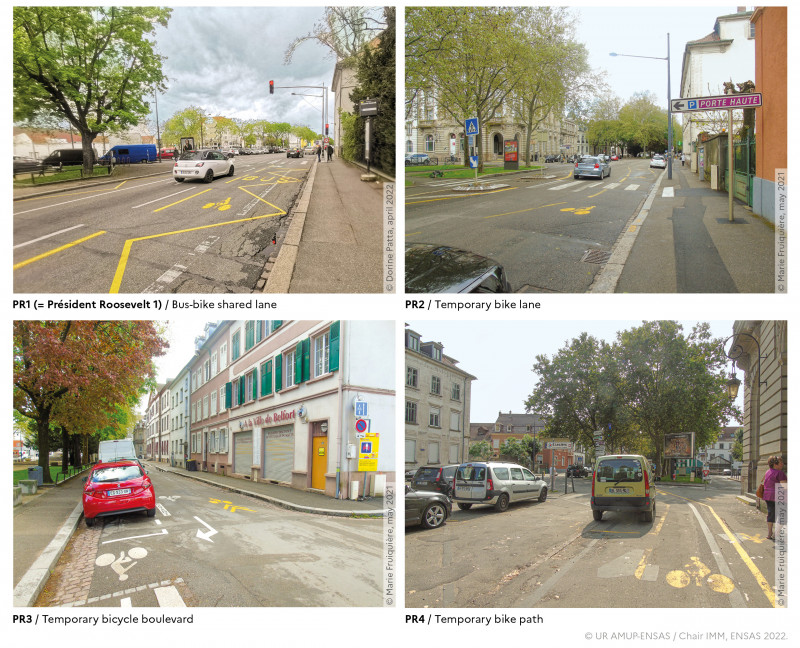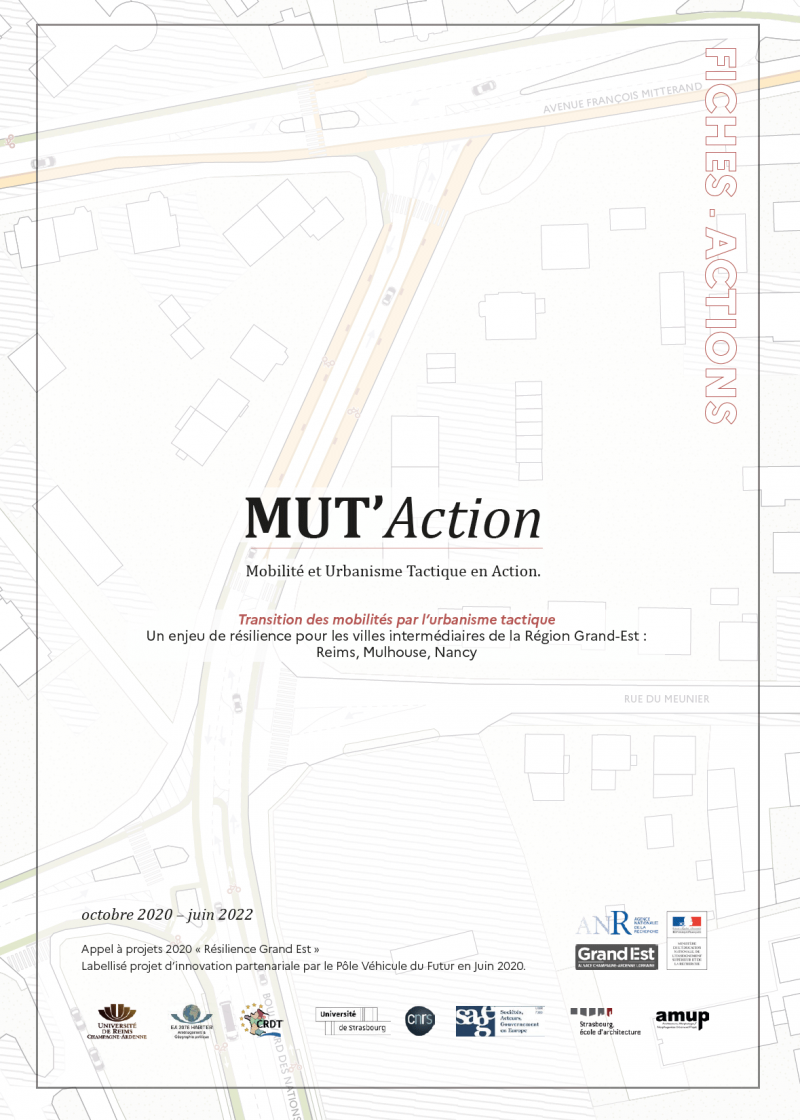Socio-spatial Dynamics and Changes in Urban Mobility Practices in a Pandemic Context
Because of its unprecedented and global character, the Covid-19 pandemic can prove a powerful analyzer of the way cities are made and especially of urban mobilities. We have chosen to study the case of the urban unit of Mulhouse, which had 247,065 inhabitants in 2018, because it was particularly impacted by Covid-19. This paper tries to understand whether the city residents have been able to appropriate the new “tactical” cycling installations (coronapistes) , whether during the lockdown periods when they were set up or subsequently. This question is approached through the conjoined analysis of the socio-spatial dynamics at play and the changes in urban mobility practices that occurred during the pandemic, following a mixed method case study in France.
The main results are broken down into three parts. First, based on the words of the respondents, this paper examines whether the residents have changed their mobility behavior or not and what their underlying motivations have been. Then, it establishes a spatialized relation between the practices and perceptions of cyclists, who were the main targets of post-lockdown mobility plans. Finally, we focus on certain specific parts of the city which the survey revealed as sources of tension.




